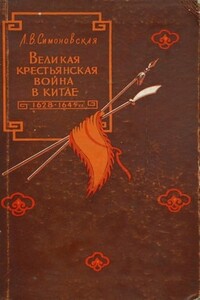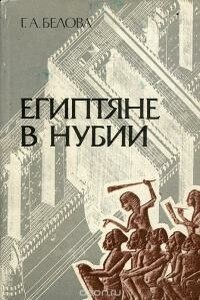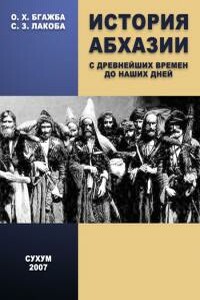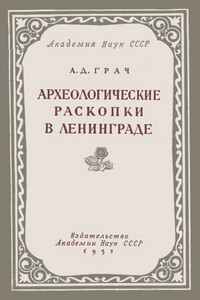Иностранные известия о восстании Степана Разина - [3]
But, being thus happily joyn'd, on the 13 of the Kalends of February 16 70/71, upon the great Plain of Wariaschal, some five caitans or miles from Moscow; which goodly Plain of the world is Croned on each side with stately cloud-breaking Hills, the foot of each beautified with a plenteous River; this Plain holding their distance six miles one from other, so enduring it self in a level Valley from Moscow sixty miles to Wrackoza, where her fruit-affording streams, like sisters in Bounties love, twist themselves into the Ambonine Ocean, welcome (from their long travel in circulation run) into their first mothers womb again.
Here Madam Nature likewise, desirous to take her children home, had provided this fair and so large a Tomb, whilst on her aged hoary head, and dewie face, by Nine that morn, the Imperial Forces were on Wariaschal's (other days pleasant, now bloudy) Valley drawn up; whose strength, in two Bodies managed, whole and compleat, consisted of more then Eighteen thousand Horse, commanded by known valiant Conductors, and Infantry of the double-numbred force, led by Commanders of like unquestionable gallantry; with so great Ammunition-stores, as might some days employ their braving mindes; an Artillery-Train of 28 Field-Cannon, 18 Demy, 26 whole Culverin; with Saich, Partridge, and Murderes, on Carriage, above 40.
Thus equipped or fitted, drew down their Bodies, the Right by the General Dolerucko, the other by the Czar commanded; Faced the Enemy, whose more numerous Body by 20000 Horse and Infantry, in their own thoughts securely advance, in like Bodies, the Right led by the grand RebelStepan Radzin, the other by the great strengthner of this unhappie Feud, the PatriarchDemainzone, backed by a forcible Train of Artillery.
By Ten a clock, in horrid peals of shot, were so neer approached the Right Wings, (the one by Authority, the other by Numbers doubtless emboldned) that the Horse of the Rebels, by desperate Charge, and continued hours fresh assault, cause the General Dolerucko give retreat: but his true Reserve, and the Imperial Guard, with the Artillery well plyed, so galled his Plumes for some time; such a populous Wing, and on pursuit, was never heard of to be better pluckt whilst then. TheCzar, not being out of action, and seeing the whole Diadem at stake, left the sharp Dispute he was engaged in with Demainzone, and fell into the Rere of the pursuant the Rebel Radzin, with so powerful management, as shook his mounted body, and over ran his Infantry to all wonder. The Patriarch mistaken in the suddenness of his wheeling, expecting he intended by the change of ground into his Flank, wheeled to the contrary to provide for his reception: and the Army spreading so fully the Plain, ere he could well recover his rash motion; the Rebel Radzin, unassisted, had neither ground for handsome retreat, nor safety in flight; but indeed (with unheard-of resolution) forced (like the son of Despair) his pass between the buryings of the Czar'sInfantry, into his first ground again, and joyned with the Patriarch, commanding some retreat, to compleat his battered Companies. In this Onset were lost five of the Great Dukes Colours, three of Horse, and two of Foot; and thirteen of the Rebels, with the return of unpitied shattered Files.
Then the truly-gallant-spirited Moscovian Generals foreseeing the Rally of the Rebels might yet be managed with more then equal figures, took the advantage to cut off the cyphers, thereby to lessen the sum; drew their whole Body upon their Rere with great success in slaughter, till the Rebel Radzin again faced their Front, and by renewed fury continued battel from twelve a clock till three with such vicissitude of fate, Sir, it cannot here be expressed; but unquestionably the dispute was so hot, that these Armies came to change blows, some Regiments intermixt rudely one amongst another. And then believe so prodigious a Rebellion was never so quasht in less then seven hours: for by four a clock in the afternoon, the General Dolerucko had the clear possession of the plain for four miles pursuit on the Rebels ground: and then night drew on her sable veil, under which covert the left scattered Rebel-troops, unarmed, hid their despairing heads; which the Generals next days pursuit for sixteen miles found, and totally discomfited, with the jloreat of Victory, the taking of the Head-rebel

"3 феврале — марте 1919 года комиссия сената США слушала людей, вернувшихся из революционной России. Для оправдания интервенции нужно было собрать доказательства, что власть в России узурпирована кучкой преступников, безнравственных и корыстных людей, подчинивших себе народ с помощью «агитаторов из Ист-Сайда» и германских офицеров." Статья из журнала Энергия, экология 1990 № 11.

Очерк истории крестьянской войны XVII в. в Китае. В книге рассказывается о Китае в конце правления династии Мин, причинах развития повстанческих движений, ходе и итогах восстания.

В книге рассказывается история главного героя, который сталкивается с различными проблемами и препятствиями на протяжении всего своего путешествия. По пути он встречает множество второстепенных персонажей, которые играют важные роли в истории. Благодаря опыту главного героя книга исследует такие темы, как любовь, потеря, надежда и стойкость. По мере того, как главный герой преодолевает свои трудности, он усваивает ценные уроки жизни и растет как личность.

В монографии исследуется один из вопросов взаимоотношений древнего Египта с Нубией, а именно вопрос становления аппарата египетской военной и гражданской администрации на этой территории. Прослеживаются три этапа, связанные с изменениями характера политики Египта в этом регионе, которые в конечном счете привели к превращению Нубии в египетскую провинцию. Выделена роль местного населения в системе сложившихся египетских административных институтов. Исследование охватывает период Древнего, Среднего и Нового царств.

В основе книги лежит историко-культурная концепция, суть которой – рассмотрение истории абхазов, коренного населения Абхазии не изолированно, а в тесном взаимодействии с другими соседними народами и древними цивилизациями. Здесь всегда хорошо прослеживалось биение пульса мировой политики, а сама страна не раз становилась ареной военных действий и политико-дипломатических хитросплетений между великими державами древности и средневековья, нового и новейшего времени. За последние годы были выявлены новые археологические материалы, архивные документы, письменные источники, позволившие объективнее рассмотреть многие исторические события.

Книга, написанная археологом А. Д. Грачем, рассказывает о том, что лежит в земле, по которой ходят ленинградцы, о вещественных памятниках жизни населения нашего города в первые десятилетия его существования. Книги об этом никогда еще не было напечатано. Твердо установилось представление, что археологические раскопки выявляют памятники седой старины. А оказывается и за два с половиной столетия под проспектами и улицами, по которым бегут автобусы и трамваи, под дворами и скверами, где играют дети, накопились ценные археологические материалы.